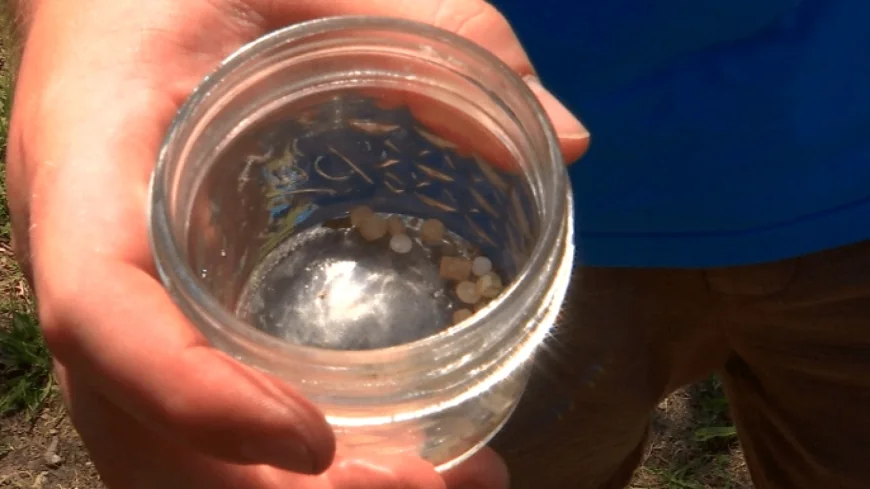‘Nurdle hunting’ brings awareness to plastic pollutant

HOPEWELL, Va. (WRIC) -- Advocates from Environment Virginia are bringing awareness to the trillions of plastic pellets that enter waterways every year.
The pellets, called nurdles, are the building blocks of plastic products, from Frisbees to car bumpers. Environment Virginia said over 10 trillion nurdles enter the ocean every year. They're often littered during the manufacturing or shipping process.
Today, the group searched for nurdles on the shores of the James River in Hopewell, across the river from what State Director Elly Wilson said is a manufacturer of the pellets. The group kept track of what they found, and Wilson said that data will be shared on a global database called nurdlepatrol.org.
Environment Virginia hopes the nurdle hunt and the resulting data will bring awareness to the severity of the issue.
"To be honest, hearing the word nurdle [it] doesn't sound very intimidating," said field manager Kai Hawkins.
But the group said the reality is, when nurdles enter the ocean, they harm wildlife who may eat them by mistake. The pellets eventually break down, contributing to pollutants people consume.
"This is my second nurdle hunt and I'm really seeing how far they can break down," Hawkins said. "They can start from a very visible level, but they break down very small and then into microplastics."
Wilson said she hopes Virginia lawmakers will pass stronger regulations on ports and manufacturers of nurdles.
"There's technology that exists that could alert them if pellets are entering our waterways," Wilson said. She's advocating for legislation that would make the technology a requirement at these facilities.
"It would require things like thicker bags at bagging facilities, because they oftentimes tear and break. Wind tunnels at ports where when they transfer [pellets], it's a bunch of wind. So the pellets don't go flying into the water that way. So there's a lot of really commonsense best practices," Wilson said.
Wilson also said legislation introduced in the past state session died in committee. But she hopes if more awareness is brought to the issue, a law could be passed that holds producers accountable.
"Virginia started taking action on reducing plastic pollution, and it's really focused on what we can do to have consumers not pollute as much plastic," Wilson said. "But we have this massive amount of plastic pollution happening before it's ever even made into a product. And so we should be holding producers to the same standard we’re holding consumers when it comes to litter."

 VENN
VENN 





